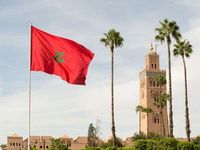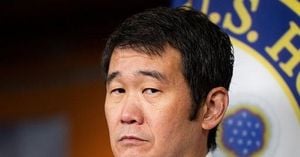Morocco is emerging as a significant player in renewable energy on the global stage, characterized by political stability and strategic investments in both solar and wind energy sectors. A recent study by the American company "Company for Verification, Studies, and Accounting Expertise" confirmed that "Morocco enjoys a strong political stability compared to many Arab and African countries and has a strategic geographical location." This stability is paving the way for the country to leverage its resources and attract substantial foreign investments.
The report highlighted that Morocco is attracting significant investments in renewable energy, particularly in solar energy, thanks to its favorable climate and natural resources conducive to such projects. In alignment with this, a recent report from the British firm "Solar Power Europe" stated that "the Kingdom of Morocco has strengthened its position in the global renewable energy map, especially solar energy." This acknowledgment is vital as it elevates Morocco's status as a resource-rich nation capable of meeting both national and international energy demands amidst a growing global interest in clean energy.
Moreover, Morocco is advancing its goals in the renewable sector by working towards increasing the share of renewables in its energy mix. The country aimed to reach at least 52% renewable energy output by 2030, showing a commitment to transitioning towards sustainable energy. "Increasingly, Morocco aims to reach 52% at least of renewable energy by the year 2030," the report from Solar Power Europe explained, emphasizing the ambitious vision set forth by the Moroccan government.
The strategic geographic advantages, especially in solar and wind energy production, have positioned Morocco favorably on the renewable energy front. With regions like the south Atlantic coast and the north, specifically Tangier and Tetouan, endowed with natural resources, the government is laying the groundwork to develop major projects. The potential of wind energy in these regions is significant; for instance, average wind speeds can reach up to 10 meters per second, which is often ideal for effective energy production.
Furthermore, cooperation with key authorities throughout the value chain of renewable energy is essential as it helps facilitate technological advancements and foreign investment. According to Solar Power Europe's report, "Cooperation with major relevant authorities across the value chain of green hydrogen can generate significant foreign investment and technology transfer." This collaboration is crucial for developing energy capabilities that utilize hydrogen production combined with solar power.
The dreams of becoming a regional leader in renewable energy hinge upon Morocco's long-term strategies and legislative frameworks, aimed at enhancing the investment climate in this sector. These initiatives reflect a broader understanding that the demand for clean energy will only increase in coming decades, necessitating proactive measures to meet these needs.
Moreover, the plans to develop comprehensive networks that connect power-rich areas to consumption centers are pivotal. Projects are in place to enhance the electric grid, which will ensure sufficient transmission and efficiency of energy generated from renewable sources. This systematic development means that regional cooperation is also needed, allowing Morocco to connect with neighboring countries for energy export and exchange, thereby increasing its profile in the renewable energy market.
To sustain these efforts, there is a need for supportive policies that promote investments in solar and wind projects. The report emphasized the need for "designing factories with high energy dependence on partnership in this market to significantly achieve Morocco's renewable goals." Creating incentives that cater to industries particularly reliant on energy could catalyze even greater successes in reaching national targets.
More so, the potential for green hydrogen production remains a focal point of Morocco's energy strategy. The country has vast capabilities that make it a frontrunner for producing green hydrogen at competitive costs. These capabilities can attract significant investments and technology transfers necessary for harnessing renewable energy effectively. Building advanced hydrogen production facilities can also merge with marine desalination projects, offering a sustainable solution for water and energy needs.
Overall, Morocco's ambitious plans, combined with its political stability and favorable natural resources, create a robust foundation for a thriving renewable energy sector. As the country seeks to solidify its position on the global energy map, collaboration with international investors and maintaining a supportive regulatory environment will be essential. Completing the strategy to optimize solar and wind potential could very well set Morocco at the forefront of renewable energy development not just in Africa, but worldwide.




